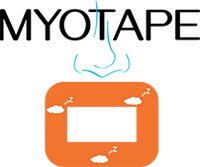Continuous Positive Airway Pressure (CPAP) therapy is a common treatment for sleep apnea, a condition where breathing repeatedly stops and starts during sleep. However, the effectiveness of CPAP can be compromised by mouth breathing, which leads to mouth leaks and reduced adherence to CPAP therapy.
A study conducted at a university teaching hospital with a sleep laboratory aimed to explore this issue further. The study focused on comparing CPAP adherence between mouth breathers (MBs) and nose breathers (NBs). CPAP-naive patients, meaning those who had never used CPAP before, were recruited for the study. The participants were divided into two groups based on their breathing patterns during sleep: those who breathed primarily through their mouths and those who breathed primarily through their noses.
A total of 51 patients participated in the study, with 30 classified as mouth breathers (breathing through their mouths more than 70% of the total sleep time) and 21 as nose breathers (breathing through their mouths less than 30% of the total sleep time). They recorded various physiological parameters during sleep and the patients were then followed for one year to monitor their adherence to CPAP therapy.
Key Insights from the Study
- The study found that mouth breathers had significantly more mouth leaks during CPAP therapy compared to nose breathers. Adherence to CPAP therapy was better in nose breathers.
- At the one-year follow-up, 71% of nose breathers used CPAP for more than 4 hours per night, compared to only 30% of mouth breathers. This highlights a significant difference in long-term adherence between the two groups.
What Can You Learn?
Nasal breathing is critical for individuals undergoing CPAP therapy for sleep apnea. Mouth breathing during sleep can lead to significant mouth leaks, which compromises the effectiveness of CPAP therapy and reduces adherence. When patients breathe through their noses, they experience fewer leaks, making the therapy more effective and easier to maintain over the long term.
Nasal breathing not only enhances the efficiency of CPAP therapy but also contributes to better overall sleep quality. Nose breathers in the study showed significantly higher adherence rates, with 71% using CPAP for more than 4 hours per night at the one-year follow-up, compared to only 30% of mouth breathers. This highlights the substantial benefits of maintaining nasal breathing during sleep for managing sleep apnea effectively.
Renowned breathing expert, Patrick McKeown invented MyoTape, a simple and safe mouth taping solution that restores nasal breathing and ensure optimal CPAP function throughout the night. By using MyoTape, you will experience fewer awakenings and wake up feeling refreshed, allowing you to manage your sleep apnea symptoms and enjoy a better quality of life.
Unlike CPAP alone, MyoTape helps maintain nasal breathing, making your treatment more effective and comfortable. Explore our MyoTape mouth tape products today and improve your sleep quality! Our products includes mouth tapes for adults and for kids. You can use MyoTape along with your CPAP treatment, as it is a great mouth tape for CPAP users. You can find out why mouth tapes and CPAP is an effective combo.
References:
Bachour A, Maasilta P. Mouth breathing compromises adherence to nasal continuous positive airway pressure therapy. Chest. 2004 Oct;126(4):1248-54. https://pubmed.ncbi.nlm.nih.gov/15486389/








